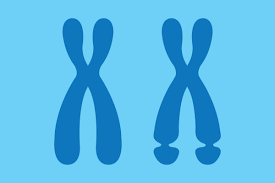Fragile X Syndrome

Fragile X syndrome is a genetic disorder that affects individuals worldwide, causing a range of developmental and intellectual disabilities.
Fragile X syndrome is caused by a mutation in the FMR1 gene, located on the X chromosome. The mutation causes a repeat expansion of the CGG trinucleotide sequence in the gene, resulting in the silencing or reduced production of the FMR1 protein. This protein is crucial for the normal development and functioning of the brain, and its deficiency leads to the characteristic features of Fragile X syndrome.
The severity and specific symptoms of Fragile X syndrome can vary widely among affected individuals. In boys, who have one X and one Y chromosome, the impact is typically more pronounced than in girls, who have two X chromosomes. Common signs and symptoms include:
Developmental delays: Language and speech development, motor skills, and social interaction may be delayed.
Physical features: Some individuals may have distinct physical characteristics, such as a long face, large ears, and a prominent forehead.
Behavioral challenges: Anxiety, attention deficit hyperactivity disorder (ADHD), impulsivity, and autistic-like behaviors are commonly observed.
Sensory sensitivities: Heightened sensitivity to sensory stimuli, such as loud noises or certain textures, may be present.
Reproductive implications: Fragile X syndrome can cause fertility issues and premature ovarian failure in females.
While there is no cure for Fragile X syndrome, various interventions and therapies can help individuals reach their full potential and improve their quality of life. These may include:
Early intervention: Early diagnosis and intervention can lead to improved outcomes. Early childhood education programs, speech therapy, occupational therapy, and physical therapy can address developmental delays and promote skills acquisition.
Behavioral and educational interventions: Applied Behavior Analysis (ABA) and specialized educational programs can support individuals with Fragile X syndrome in developing communication, social, and adaptive skills.
Supportive services: Accessing support services, such as counseling, support groups, and respite care, can assist families in coping with the challenges and connecting with others facing similar experiences.
Genetic counseling: Genetic counseling can provide families with information about Fragile X syndrome, recurrence risks, and family planning options.
Fragile X syndrome is a complex genetic disorder that significantly impacts individuals and families. By fostering awareness, understanding, and support, we can help create a more inclusive environment for individuals with Fragile X syndrome.
Tags: Pwds Signstv Fragile X Syndrome


